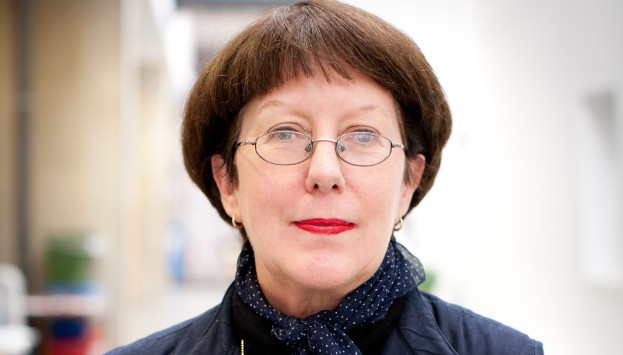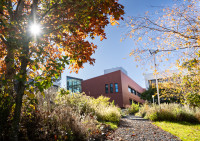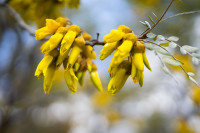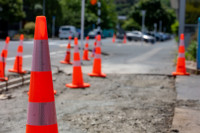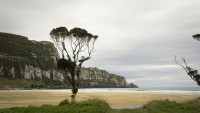Kia ora koutou dear colleagues,
When Shane suggested I write this blog in the wake of leaving Te Pūkenga ki Otago on 16th December, the reality of actually leaving really hit home. I have worked here for 26 happy years and have enjoyed every minute of it. Forgive me for walking down memory lane for a while.
Arriving for an interview at the Dunedin School of Art in 1996 was not an auspicious start as I was faced with a locked door. Only later in the day did I realise it had been closed on a ‘snow day’, a concept unknown for a person from South Africa.
But, good things followed. At the Art School, we as lecturers in Art History & Theory could be wildly creative with course content, always within programme parameters of course. Planning new, contemporary courses and delivering them in innovative ways brought real joy and huge rewards through ākonga engagement and their learning, which I could experience firsthand with them.
In 1998, we enrolled our first Master of Fine Arts candidates and I became the programme manager. Over the ensuing 25 years, this programme has led in the New Zealand tertiary sector and further afield and is still doing so. I am very proud of what the students, supervisors, technicians, and support services have achieved together through public exhibitions and finely tuned writing outcomes. Being a supervisor for approximately 100 postgraduate essays and dissertations over the years has been a truly amazing experience, it is truly incredible what one can learn from student projects!
In 2006, we joined the nationwide Performance Based Research Funding process and I remember Robin Day phoning me in Australia to tell me the excellent outcome of our evidence portfolio ratings. We were both so thrilled as we had been involved with staff mentoring together with Jenny Aimers and this first result felt fitting and boding well for our PBRF future. That same year, I was confirmed as the first Otago Polytechnic professor, what an honour!
In 2009, I became the Head: Dunedin School of Art and had the privilege to work with a group of highly creative and innovative colleagues in the well designed and sometimes quirky art school buildings, which were ideal for the ANZAAE Conference held that same year to host 300 art educators from across the motu. The new building addition to P-Block was completed about a week prior to the event, phew! As Head of School, some said I was their ‘one-eyed, wooden-legged pirate queen, presiding over a motley crew on a pirate ship’, what a privilege!
In 2011, I was given the Ako Aotearoa National Tertiary Teaching Excellence Award at Parliament in Wellington. When I returned to Dunedin, the Art School tricked me into arriving at a pub in downtown Dunedin on the evening. When I opened the door, there they were, colleagues and students, to celebrate with me. I remember two very special things about that event: A portrait of David Con Hutton, founder of the Dunedin School of Art in 1870, hangs in the School’s foyer. You can see an image of it further below on the left. On the particular evening I am remembering, I was given my own Head of School portrait, you can see it below. This was gifted to me by a first-year dyslexic student who spelled my name on the tag in his own unique way. The School of Art never speak of it, as ‘the kumara does not speak of its own sweetness’, but it is arguably the most inclusive teaching environment one could find.
On the night, we all laughed about the contrast between the portrait and my ‘anti-portrait’, which I will treasure forever. The second lovely thing I remember is that when we all scattered away going home, I could hear this companionable laughter continue like ripples across Lower Stuart Street, getting softer further away to the Octagon and Queen’s Gardens, like a lacy shawl of happiness flung across that part of our city for a little while.
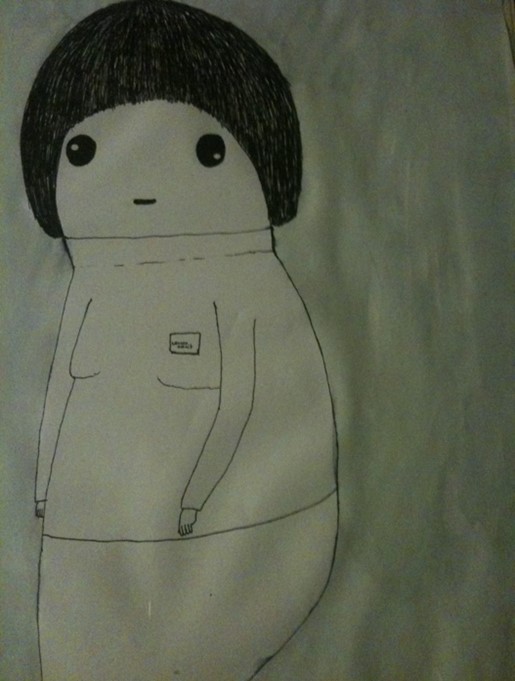
In 2017, I became the Director: Research & Postgraduate Studies and a whole raft of new challenges and opportunities opened up. The wonderful team around me strove for excellence in all our systems and processes and together with a network of researchers, coordinators, and mentors across the colleges achieved real success. EPICentre – experiment, production, innovation, construction – became a work-make-space and has thrived since with about 3000 visits a year. A stocktake of postgraduate programmes revealed strengths and areas for improvement. And, our research project around the Learner Capability Framework involved many students, alumni, and stakeholders, with 55 colleagues from all our colleges contributing to action research through interviewing employers.
RoVE and Te Pūkenga motivated the Rangahau Research Forum across the motu to work closely together towards communities of research practice and to advise and advocate for research and postgraduate studies. The Professoriate Te Kāhui Ahorangi held their inaugural hui, submitted plans for the Te Pūkenga future to Te Poari Akoranga, and contributed fulsomely to the new Ako Framework. The professoriate in Otago became a strong voice for research and academic excellence. It has been terrific to work across the motu with everybody involved in these activities. What an eye-opener and connecting experience!
For me, the opportunity to chair the first 10 Doctorate of Professional Practice final assessments with 30 external assessors from across the world has been an exceptional experience for which I am very grateful. An Operations Manual and a Modalities of Assessment Workflow have been delivered to the College of Work Based Learning to assist with this programme’s assessment processes in future.
Our annual Publications Launch on 29 November this year showed evidence of how strong our journals and other publications have become over the years. Our team are very proud of the fact that all our publications are externally peer reviewed, underpinned by ethical standards, academic freedom, and that they are all online for open and free access. The annual launch also highlights the many, diverse symposia and conferences and public exhibitions we host and produce. This takes hard work from many people – authors, editors, copyeditors, proofreaders, designers, peer reviewers, editorial liaison personnel, and more – as the whakatauki says ‘he waka eke noa!’
In 2018, I was asked to support our Auckland International Campus with research and postgraduate studies. In 2019, Sue Thompson and I were formally seconded to work there, Sue as Te Kaiapai and myself as DCE: Academic, while retaining our substantive positions in Dunedin. The environment at the Auckland Campus turned out to be hugely constructive, wonderfully collegial, and so very interesting to work amongst a team of people from around the globe. It has been enormous fun and endlessly rewarding, and seriously successful, despite multiple lockdowns in Auckland and everybody getting used to online teaching and Teams meetings with, sometimes, huge numbers of participants. What a wonderful, wild ride!
Throughout all of the above, Otago Polytechnic supported my own research and I have been able to contribute to many journals and conferences around the world over many years, the last international conferences contributed to in 2019 being at the American University of Rome and the University Ca’ Foscari in Venice, six months before Covid put us all in lockdown. Over the years, I have participated in a dynamic network of art historians and theorists and look forward to contribute more in upcoming years to my substantive discipline – Art History & Theory – with a specific focus on contemporary visual arts practice in migrant and refugee contexts.
In the meantime, it is almost the end of the year, time to say farewell and to wish everyone a lovely holiday, a productive 2023, and to thank every single person I have ever encountered and worked with at Otago Polytechnic for the many, many good things you have brought into my life. I always tried to stuff my work life kete as full as possible – we only live once – and you have collectively and individually made this possible in the loveliest, loveliest ways. Kā mihi nui.
If you would like to stay in touch, my mobile number remains the same (+64) 021-245-2895 and my new email address after 16th December will be leonisch@outlook.com. Enjoy ‘snow days’ at home in the future.
Mā te wā, Leoni.
Published on 12 Dec 2022
Orderdate: 12 Dec 2022
Expiry: 12 Dec 2024
